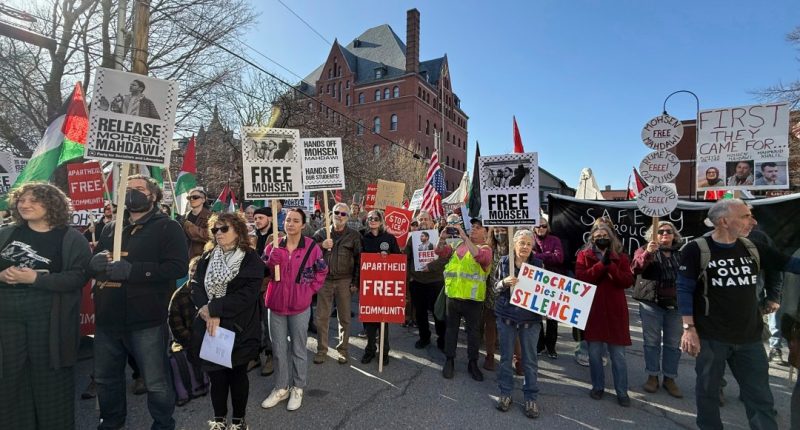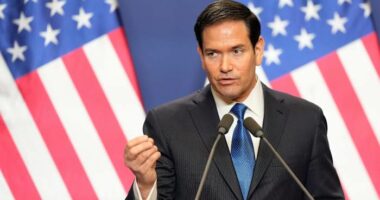Share this @internewscast.com
() Nearly 180 researchers working under now-terminated federal grants at Columbia University will soon receive “notices of non-renewal or termination,” school officials said in a statement Tuesday.
“We do not make these decisions lightly. We are deeply committed, at Columbia, to the critical work of invention, innovation and discovery,” the statement reads. “The excellence of our research portfolio is fundamental to our identity, and we are determined to support it.”
The Trump administration previously canceled $400 million in federal grants and contracts to the Ivy League school over what it called a failure to protect students from antisemitism. The campus was the scene of pro-Palestinian protests in 2024.
Columbia University had agreed to Trump administration’s demands
University leadership called the financial strain caused by the cuts “intense” and said some departments are “winding down activity but remain prepared to reestablish capabilities if support is restored.”
On March 21, Columbia agreed to a list of demands from the Trump administration in order to restore funding. The terms included hiring more campus police, banning masks, a new definition of antisemitism and reforms to admissions practices.
Days later, Education Secretary Linda McMahon said Columbia was “on the right track” toward again receiving federal funding.
Columbia officials also announced the creation of a Research Stabilization Fund, which aims to help obtain new awards and fund the continuation of ongoing research projects. Over the next year, scientists will be able to apply internally for temporary funding.
“We are working on and planning for every eventuality, but the strain in the meantime, financially and on our research mission, is intense,” the statement said Tuesday.
Harvard also facing demands from Trump administration
Other top institutions are facing the administration’s demands, including Harvard. McMahon on Monday told the university in a letter that it will no longer be eligible for new research grants from the government, just days after Trump called for Harvard to lose its tax-exempt status.
The pause will only be on new research funding, according to an Education Department official, and will not impact other funding, like federal student aid. McMahon listed four things that Harvard will have to correct in order to apply for new grants. Those include:
- Problems with antisemitism
- Alleged race-based discrimination at the Harvard Law Review
- The “abandonment of rigor and academic excellence”
- A lack of “viewpoint diversity” on campus
“The bottom line of the letter is the Trump administration won’t stand by as taxpayer dollars are used to support policies that tolerate antisemitism or that support racist policies,” the Education Department official said.
Columbia student arrested at citizenship interview
A Palestinian man who had led protests against the war in Gaza as a Columbia University student was arrested by immigration officials during an interview about finalizing his citizenship in April.
Mohsen Mahdawi had been a legal permanent resident in the country for 10 years, but was arrested by ICE and taken to the Northwest State Correctional Facility, according to the Associated Press. After a recent hearing, U.S. District Judge Geoffrey Crawford ordered his release.
Later, a judge also issued an order that barred the government from removing Mahdawi from the state or country. His lawyers have said he was detained for speaking out on Palestinian human rights.

The government argues that Mahdawi’s detention is a “constitutionally valid aspect of the deportation process” and that district courts are barred from hearing challenges to how and when such proceedings are begun.
“District courts play no role in that process. Consequently, this Court lacks jurisdiction over Petitioner’s claims, which are all, at bottom, challenges to removal proceedings,” wrote Michael Drescher, Vermont’s acting U.S. attorney.
An immigration judge in Louisiana ruled that the government’s assertion that Khalil’s presence in the U.S. posed “potentially serious foreign policy consequences” satisfied the requirements for deportation.









